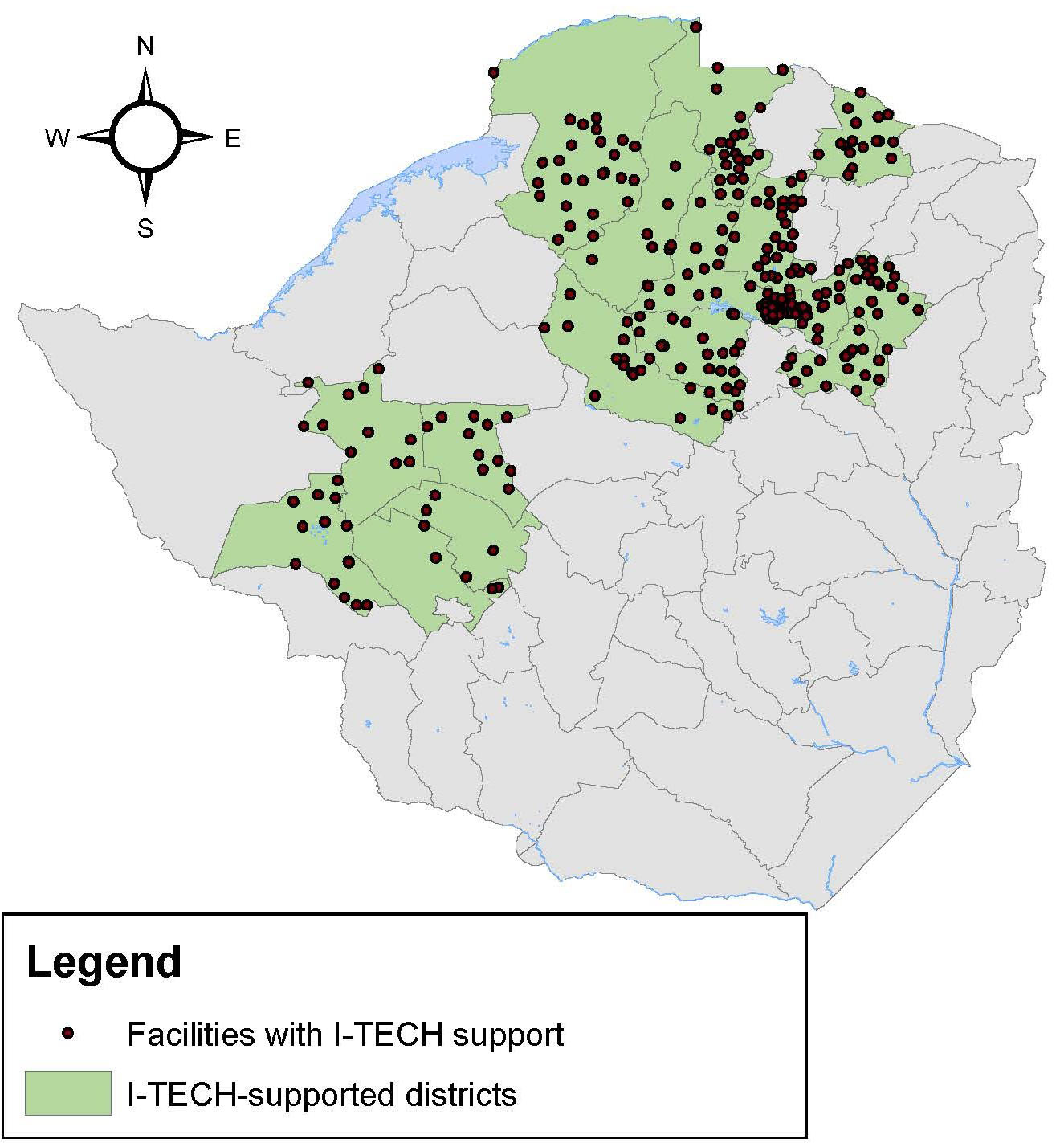The ZimPAAC consortium collaborates with the Ministry of Health and Child Care (MoHCC) in Zimbabwe to meet the following primary HIV epidemic control objectives:
- Diagnose 95% of all persons living with HIV through integrated testing
- Ensure 95% of individuals diagnosed with HIV are initiated on antiretroviral therapy (ART), retained in care, and are virally suppressed using differentiated service delivery models
Using a Differentiated care model, a patient-centered model of service delivery designed to meet the diverse needs and expectations of all people living with HIV, ZimPAAC oversees activities such as:
- facility and community-based HIV testing;
- HIV self-testing, index case testing;
- ART initiation; and
- ART delivery through multi-month refills for stable patients, Family ART Refill Groups, and Community ART Refill Groups (CARGs). CARGs benefit group members—through decreasing health center visits, offering peer support, and allowing clients to take responsibility for their health—and staff, by decreasing workload and allowing greater time for patient care.

In addition to differentiated service delivery, ZimPAAC conducts site-level mentoring at health facilities to strengthen health service delivery towards the “95-95-95” UNAIDS targets by improving patient linkages between HIV testing, initiation on treatment, and retention in care rates. This is accomplished in part by several hundred dedicated HIV testers and nurses who support ART initiation and management of opportunistic infections alongside MoHCC staff.
ZimPAAC also supports index testing through community linkages activities that help clients access HIV testing, especially sexual partners and biological children of existing HIV-positive clients who present to the health facilities. In an effort to improve index testing within MoHCC health facilities, ZimPAAC has implemented an assisted partner service model, known as Enhanced Index Case Testing. This program emphasizes reaching clients recently diagnosed with HIV and those whose blood tests show a high HIV viral load. Quality Improvement activities are a key part of ZimPAAC’s approach to improving outcomes for index testing. In 2019, a “change package” describing the interventions that have improved index testing was developed by ZimPAAC for national scale-up of the model.
ZimPAAC program activities also support retaining people living with HIV in care. Programs engage community linkage facilitators who work with facilities and communities to identify patients who have defaulted from treatment and return them to services.
In addition to HIV care and prevention for adults, ZimPAAC supports increased access to services for children and adolescents through Africaid’s community adolescent treatment supporters (CATS). CATS are HIV positive 18-to-24-year-olds trained to provide peer support, conduct demand-creation activities, build community engagement, and mobilize targeted HIV testing and outreach activities to bring services to this hard-to-reach group.
In addition to the first two objectives, ZimPAAC collaborates with MoHCC towards two additional objectives:
- Strengthen and expand access to cervical cancer screening and treatment of precancerous cervical lesions among women living with HIV
- Increase uptake of pre-exposure prophylaxis (PrEP) services through training, technical assistance and direct client support
In 2019, ZimPAAC began the expansion of cervical cancer screening for women living with HIV, beginning with a situational analysis to identify sites for implementation of a program serving women with visual inspection with acetic acid and cerviography.
Under the direction of PZAT, ZimPAAC also works closely with the MoHCC to support key-population-friendly programming in the public health sector facilities in Harare. PZAT supports health worker training at selected facilities and builds demand and knowledge of these services through community champions and engagement with vulnerable populations and advocacy and civil society organizations. PZAT also works to promote PrEP services for adolescent girls and young women in Mazowe district and among key populations in Harare.